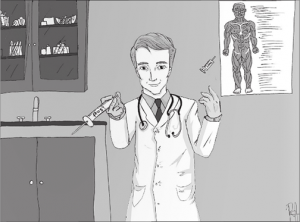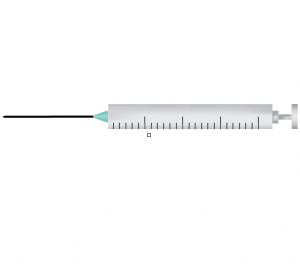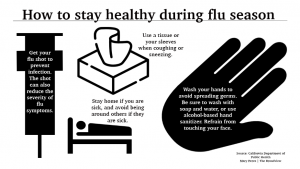Vaccine preventable
Childhood diseases see resurgence
Each vaccine requires a different dosage and booster schedule. Doctors recommend that individuals stay on top of their vaccines in order to maintain herd immunity.
April 1, 2019
Childhood diseases such as measles, whooping cough, mumps, and chickenpox are reemerging in the United States in recent outbreaks on the West Coast in California, Washington and Oregon, and doctors point to anti-vaccination groups as the cause.
“It is a tremendous risk when families do not vaccinate their children,” Dr. Anne Schafer, an endocrinologist in San Francisco said. “It can have really devastating effects not only for the child but also for the community.”
Every vaccine has a different length of immunity and immunity threshold. Seventy-five to 85 percent of the population must be immunized for mumps to maintain herd immunity, a way of protecting individuals in a community who cannot be vaccinated, whereas 83 to 94 percent must be immunized for measles, according to the “Epidemiologic Reviews.”
“Herd immunity is the benefit everyone receives from a vaccinated population,” Schafer said. “When enough people are vaccinated, everyone receives some protection from the disease because those diseases become so rare within that immunity.”
Some parents erroneously choose to not vaccinate their children, citing unproven possible negative effects from vaccines including autism, brain damage and behavioral problems according to the “Journal of Pediatric Pharmacology and Therapeutics.” These claims are false and vaccines do not cause these effects, according to studies performed by the Centers for Disease Control and Prevention.
“There was some very poor science done in the past that was unethical and has since been retracted,” Dr. Tricia Tayama, a pediatrician in San Mateo, said. “People believed it, celebrities endorsed it, and there is now an enormous misinformation campaign that really scares parents.”
While some parents also cite personal, moral or religious reasons for opting out of vaccinations, health officials urge communities to get vaccinated.
“I have never met a parent who was not trying to do the right thing for their child,” Tayama said. “I just think it’s unfortunate that they are not using the most accurate science.”
Measles complications include dehydration, ear and eye infections, laryngitis, pneumonia, seizures, and miscarriages. Whooping cough complications include pneumonia, slowed breathing, weight loss, rib fractures from severe coughing and loss of bladder control according to the CDC.
“People think these diseases are fairly harmless, but people can get hospitalized and even die,” Dr. Lisa Turman, a pediatrician at Oakland Medical Center, said. “Sometimes the symptoms of a disease can be hard to see and once you have contracted the virus, you can still be contagious for a certain amount of time depending on the disease.”
While newborn babies and immunocompromised individuals cannot be vaccinated, the majority of the population can. Healthy individuals who choose not to be vaccinated and rely on herd immunity to stay safe are increasing the likelihood of epidemiologic patterns shifting and serious diseases returning.
“There are very occasional times and very particular occasions when a physician might have a different recommendation about particular immunizations for a particular patient,” Schafer said, “but for the most part, vaccinations are recommended for all.”
Former Governor Jerry Brown signed Senate Bill 277 into law in 2016, banning religious or personal exemptions from vaccines and requiring all public and private school students in California to be vaccinated.
Convent & Stuart Hall’s policy only allows medical exemptions for vaccines and past personal or religious exceptions made before the 2016 law was passed, according to Director of Enrollment Management Jen Butler.
“The legislation that requires vaccines for school entrance is an effective strategy because that allows a vast majority of kids to get vaccinated to attend school,” Tayama said.
The U.S. Food and Drug Administration closely monitors vaccines and does not distribute them until they are proven both effective and safe.
“Before vaccines come out on the market, they are tested and studied extensively,” Tayama said. “Once the vaccines are out being used, anyone can report an adverse effect so that it can be investigated.”
While minors must have parental consent for most vaccines, teens ages 12 and older can receive immunity for sexually transmitted diseases, such as the Human Papilloma Virus that has been likened to cervical cancer, without parental consent.
Local drug stores, urgent care clinics, doctor’s offices and public health centers administer vaccinations for low cost. Many health insurances also offer routine vaccines with no additional charge, according to Tayama.
“Immunizations are the safest and most cost-effective way to prevent disease and even death,” Schafer said. “The medical community urges parents to make sure their children are immunized, and it hopes that teens who are not vaccinated in the United States will talk to their parents about that decision.”













